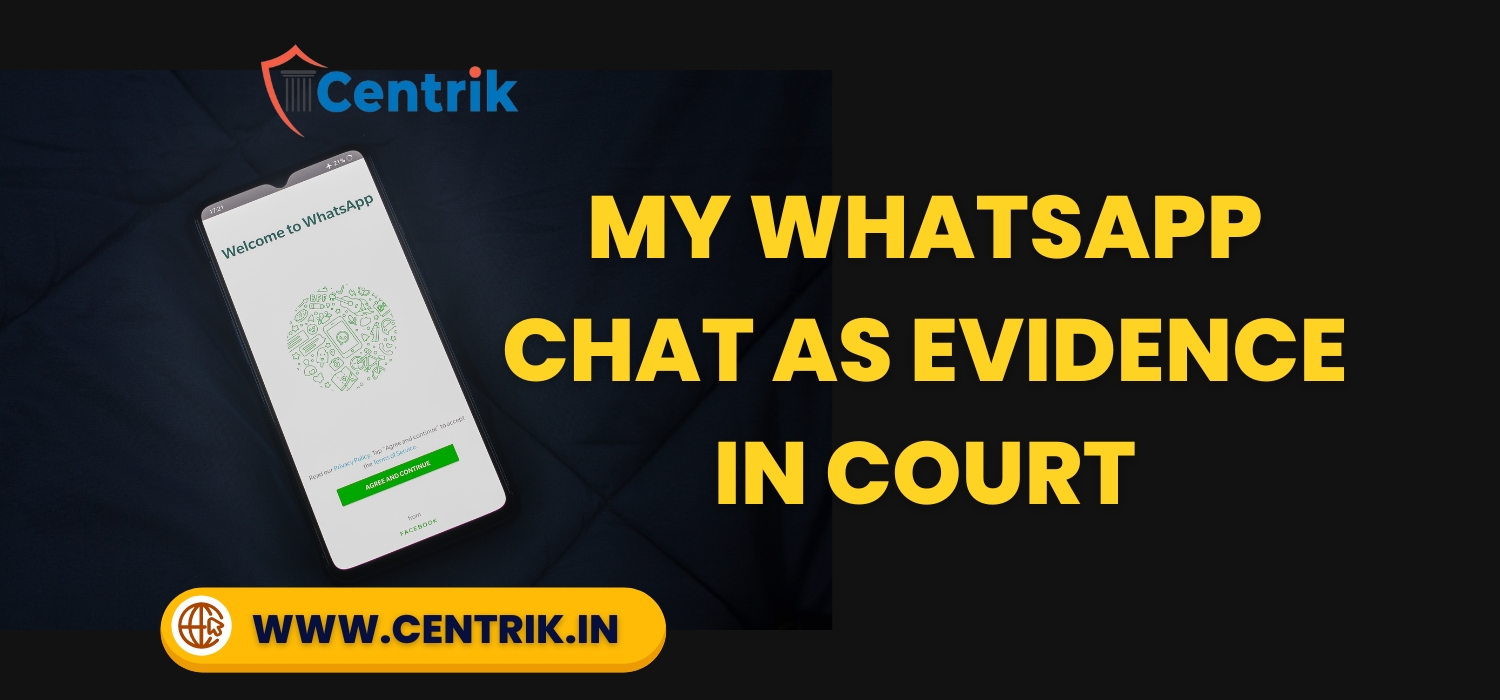In today’s digital world, communication has switched to messaging services such as WhatsApp, making it an important source of evidence in judicial cases. Given WhatsApp’s widespread use, understanding the legal legitimacy of messages and their admissibility in court is critical.

Admissibility of WhatsApp chats in the Courts:
As per the law of the land, evidence can be presented in various forms, including electronic records. The provisions of the Information Technology Act, 2000 along with the provisions of the Indian Evidence Act, 1872 allow electronic documents to be presented before the Courts as evidence and also govern the admissibility of electronic evidence, including WhatsApp chats.
Section 65B of the Indian Evidence Act outlines the admissibility of an electronic record, stating that any information contained in an electronic record that is printed on paper, stored, recorded, or copied in an optical or magnetic media produced by a computer shall be deemed to be a document. However, for such evidence to be admissible in a court of law, it must be accompanied by a certificate as prescribed under Section 65B(4), which certifies the authenticity of such electronic record produced before the court as evidence.
The certificate under Section 65B accompanying the evidence, is an essential requirement (Arjun Panditrao Khotkar v. Kailash Kushanrao Gorantyal, (2020) 7 SCC 1) which must include:
- details of the electronic record
- how the electronic record was produced
- the device on which the electronic record was produced
- that the electronic record has not been altered or tampered with
- that it was produced on a device that is being regularly used
Additionally, the original electronic data must be securely stored to avoid tampering or alteration, as any change could call into question the veracity of the evidence.
Legal Challenges and Considerations:
Despite its widespread usage, presenting WhatsApp chats as evidence in court may face certain legal challenges, including:
- Privacy Concerns: In order to ensure that the gathering and use of WhatsApp communications comply with relevant privacy rules, courts must strike a balance between the necessity for evidence and the right to privacy of individuals.
- Hearsay Objections: Hearsay arguments could be made by opposing parties, who would claim that WhatsApp conversations are untrustworthy and should be treated as hearsay evidence. Nonetheless, if the evidence satisfies the standards for authenticity and relevancy, courts may accept it.
- Admissibility Criteria: Failure to comply with the admissibility criteria outlined in Section 65B of the Indian Evidence Act may render WhatsApp chats inadmissible in Courts.
Conclusion
If WhatsApp conversations are properly verified and kept in compliance with the law, they can be used as important evidence in Indian courts. In order to guarantee the validity and integrity of electronic data, litigants and legal professionals need to be aware of the admissibility requirements and take the necessary precautions. WhatsApp conversations can be very helpful in proving facts and settling disagreements in court cases provided they are properly authenticated and preserved.




 join For Updates
join For Updates